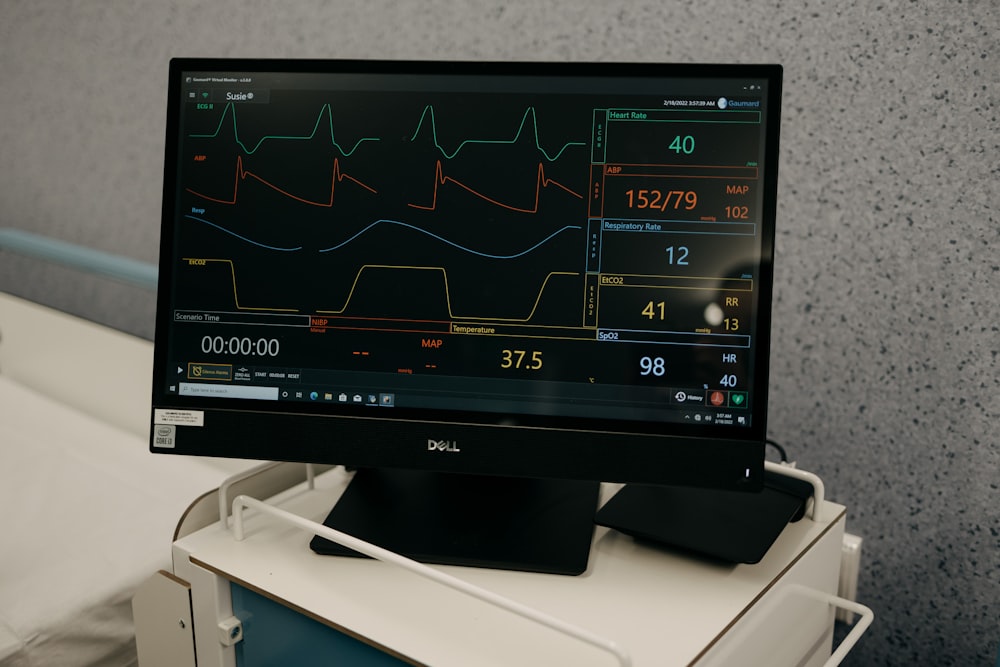In recent years, Artificial Intelligence (AI) has emerged as a game-changer in numerous industries, and healthcare is no exception. The integration of AI technologies in healthcare systems has unlocked immense potential for improving patient care, enhancing diagnostics, streamlining administrative tasks, and transforming the healthcare landscape as a whole.
In this article, we will explore the profound impact of AI in healthcare and delve into its potential to revolutionize the industry.
Advanced Diagnostics and Personalized Treatment:
- One of the most significant contributions of AI in healthcare is its ability to revolutionize diagnostics and treatment plans. AI algorithms can quickly analyze vast amounts of patient data, including medical records, lab results, and imaging scans, to identify patterns and generate insights that aid in accurate diagnoses.For example, from the new research from the University of Edinburgh, an algorithm called CoDE-ACS compared to current testing methods, CoDE-ACS was able to rule out a heart attack in more than double the number of patients, with an accuracy of 99.6 percent. The algorithm was developed using data from 10,038 patients in Scotland who had arrived at the hospital with a suspected heart attack.Machine learning algorithms can learn from vast datasets, helping physicians make more informed decisions and enabling early detection of diseases, such as cancer or cardiovascular conditions, leading to timely interventions and improved patient outcomes.
AI-powered systems can also facilitate personalized treatment plans by considering individual patient characteristics, genetic profiles, and lifestyle factors. This targeted approach allows healthcare providers to optimize treatment effectiveness, reduce adverse effects, and enhance patient satisfaction.
Streamlining Healthcare Administrative Tasks
- The administrative burden in healthcare can be overwhelming for healthcare professionals, often consuming valuable time that could be better spent with patients. AI technology offers solutions to automate routine administrative tasks, such as appointment scheduling, billing, and documentation. Natural Language Processing (NLP) algorithms enable efficient extraction of relevant information from medical records and automate coding, reducing the administrative workload for healthcare providers. Therefore, automation not only enhances efficiency but also minimizes the chances of errors, ensuring accurate and up-to-date patient records.
Predictive Analytics and Preventive Care
- AI-driven predictive analytics holds tremendous potential for preventive care. By analyzing patient data, including medical history, lifestyle factors, and genetic predispositions, AI algorithms can identify individuals at high risk for developing certain diseases or conditions. This proactive approach empowers healthcare professionals to intervene early, providing personalized recommendations for lifestyle modifications, regular screenings, or targeted interventions, ultimately preventing the onset or progression of diseases.
Drug Discovery and Development
- The process of developing new drugs is complex, time-consuming, and costly. AI-powered systems can significantly expedite the drug discovery process by analyzing vast amounts of biomedical data, including genetic information, and clinical trial results. Machine learning algorithms can identify potential drug candidates, predict their efficacy, and optimize drug design. Furthermore, this acceleration in drug discovery not only saves time but also allows researchers to focus their efforts on the most promising avenues. Leading to more effective treatments for various diseases.
Telemedicine and Remote Monitoring
- AI technology has also played a crucial role in facilitating telemedicine and remote patient monitoring. Through AI-enabled chatbots and virtual assistants, patients can access basic healthcare information, schedule appointments, and receive personalized guidance remotely. AI-powered wearables and IoT devices can continuously monitor patient vital signs, collecting real-time data for analysis. These capabilities enable healthcare providers to remotely monitor patients with chronic conditions, detect abnormalities, and intervene promptly. Ensuring timely care and reducing hospital readmissions.
Conclusion
Artificial Intelligence has unleashed a wave of transformation in healthcare, offering unprecedented opportunities to enhance patient care, optimize processes, and revolutionize the industry as a whole. By leveraging AI technologies, healthcare providers can achieve advanced diagnostics, personalized treatments, predictive analytics, efficient drug discovery, and improved remote patient monitoring. As AI continues to evolve, its potential to revolutionize healthcare will only grow, fostering a future where patient outcomes are improved, healthcare delivery is more efficient, and lives are saved.


